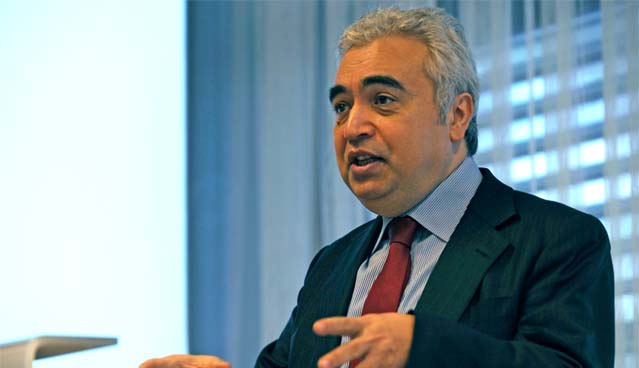IEA chief Fatih Birol: A Herculean task

Speaking at Energy Ireland 2021, Executive Director of the International Energy Agency Fatih Birol discusses the IEA’s perspective on the actions required to meet shared international climate goals and how Ireland can play its part.
Referencing the proliferation of net zero pledges, Birol begins by suggesting that this is an indication of a growing momentum among many countries which are “taking the climate change challenge extremely seriously”. Simultaneously, clean technologies are increasingly assuming primacy.
However, while welcoming these developments, there continues to be a gap between rhetoric and reality. “This year, global emissions will increase substantially; the second largest increase in history,” the IEA chief warns.
“On one hand, you see a positive momentum, but on the other hand, when looking at the numbers, there is a completely opposite trend. Therefore, there is a growing gap between the rhetoric and the reality, which definitely worries us at the International Energy Agency.”
Achieving net zero emissions, he asserts, will require a transformation of the entire energy system. While there has been a significant expansion of clean energy technologies, ranging from solar and wind to efficiency and electric vehicles, IEA analysis suggests that 50 per cent of reductions required to reach net zero will need to come from technologies which are not yet market ready.
As such, Birol outlines three “Herculean tasks” that must be completed between now and 2050.
Firstly, a rapid expansion and deployment of existing clean energy options is necessary. “We need a big push over the next 10 years. This is the number one job,” he remarks.
Secondly, there must be a massive leap in innovation, particularly across batteries, hydrogen, synthetic fuels, carbon capture and many other technologies. Simultaneously, this offers an opportunity to develop industries of the future, generating millions of skilled jobs.
Thirdly, the final objective required to reach net zero by 2050 is “reducing the consumption of fossil fuels steadily from current levels to much lower levels”.
Addressing the rhetorical question of whether these tasks are indeed achievable, Birol acknowledges: “It is extremely challenging to say the least. The pathway is very narrow but still achievable if there is intelligent collaboration among the countries and if it comes very strongly… There are some good signals, but I would not be telling the truth if I said there is a perfect collaboration among the countries today.”
Maintaining that the mammoth dual challenge of net zero by 2050 and limiting global warming to 1.5°C target “should not be an excuse not to move”, Birol argues that a temperature increase of 1.6°C or 1.7°C is “still much better than the 3.0°C pathway that the world is following today”.
“Ireland is a very innovative country and can play a critical role in the next chapter of our energy world.”
Without securing broad public support for the clean energy transition, Birol believes that there is “no chance of reaching this target, at least in the democratically run countries”.
“There are many challenges in going from here to there,” he says, adding: “If I had to highlight one, which is very important for me, it is the fact that this transition will create a lot of jobs, while a lot of jobs will also be lost.
In seeking to deliver a fair and inclusive net zero pathway, therefore, Birol established the Global Commission on People-Centred Clean Energy Transitions in January 2021. Ahead of COP26 in Glasgow, the Commission – which includes over 20 energy and climate ministers from around the world and is chaired by the Danish Prime Minister – will publish a series of recommendations on ensuring that the clean energy transition is fair, inclusive and people centred.
Commending Ireland’s leadership and focus on climate ambition, Birol praises the enactment of the Climate Action Act in July 2021 for putting Ireland on a legally binding path to net zero.
Observing that “Ireland has always been a country with a huge innovation strength”, he indicates that the national focus must now turn to action in retrofitting, infrastructure investment, and renewables deployment. The State should, he feels, leverage this innovative spirit alongside its natural resources and sizeable tech industry to act rapidly and accelerate progress.
Identifying the Irish Government’s commitment to support the construction of 300,000 new homes by 2030 as an opportunity to lead by example, the IEA chief urges that all new dwellings be built to zero emission standards, combining energy efficiency with renewable installations.
While conceding that the path ahead will be difficult, he believes that comprehensive international collaboration will be required to facilitate effective strategies to attract and deploy clean energy investment.
“Ireland is a very innovative country and can play a critical role in the next chapter of our energy world. We will have a new energy economy, which is different than in the past and Ireland can with all its innovative and competitive advantages, play an important role there,” Birol concludes.
Profile
Fatih Birol Fatih Birol has served as Executive Director of the International Energy Agency since September 2015. He was re-elected in January 2018 for a second four-year term, which began in September 2019. Under his leadership, the IEA has undertaken its first comprehensive modernisation programme since its creation in 1974. This effort focuses on three pillars: opening the doors of the IEA to include major emerging countries, such as Brazil, China, India, Indonesia, Mexico and South Africa who have joined the IEA Family, thus increasing its share of global energy demand from 38 per cent to almost 75 per cent; broadening the IEA’s security mandate to natural gas and electricity as well as oil; and making the IEA the global hub for clean energy technologies and energy efficiency.





